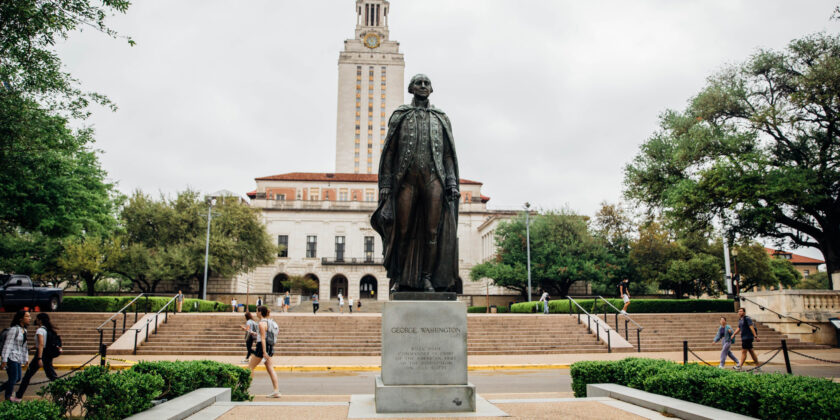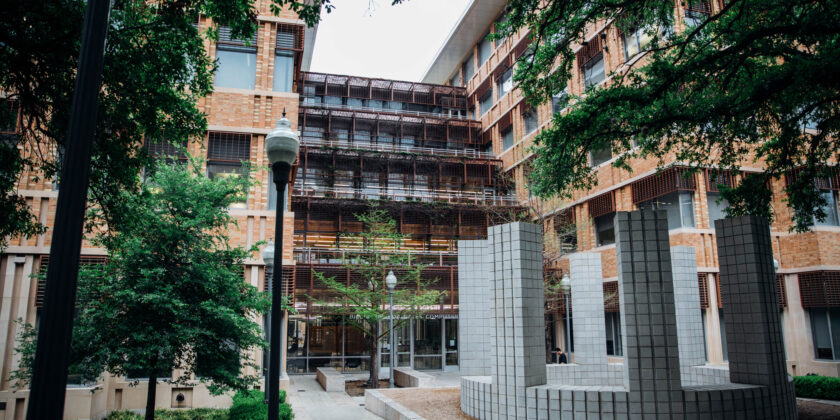| 1 |
University of Pennsylvania (Wharton) |
100.00 |
6.49% |
1486 |
97.00% |
| 2 |
Washington University in St. Louis (Olin) |
98.37 |
9.70% |
1510 |
91.00% |
| 3 |
University of California-Berkeley (Haas) |
94.09 |
4.30% |
1490 |
80.85% |
| 4 |
Cornell University (Dyson) |
92.14 |
2.90% |
1453 |
83.33% |
| 5 |
University of Michigan (Ross) |
89.58 |
12.00% |
1470 |
82.22% |
| 6 |
New York University (Stern) |
88.73 |
8.00% |
1468 |
77.08% |
| 7 |
Carnegie Mellon University (Tepper) |
88.00 |
12.00% |
1473 |
78.00% |
| 8 |
Georgetown University (McDonough) |
87.64 |
15.84% |
1431 |
90.00% |
| 9 |
University of Virginia (McIntire) |
86.79 |
12.15% |
1407 |
90.00% |
| 10 |
University of Notre Dame (Mendoza) |
83.74 |
19.00% |
1429 |
84.60% |
| 11 |
University of California-Irvine (Merage) |
81.60 |
22.00% |
1359 |
98.00% |
| 12 |
University of North Carolina at Chapel Hill (Kenan-Flagler) |
79.60 |
12.17% |
1367 |
82.70% |
| 13 |
Southern Methodist University (Cox) |
77.50 |
11.12% |
1494 |
49.00% |
| 14 |
Emory University (Goizueta) |
76.65 |
17.21% |
1470 |
58.00% |
| 15 |
Boston College (Carroll) |
75.98 |
25.00% |
1402 |
78.65% |
| 16 |
University of Texas-Austin (McCombs) |
75.71 |
22.80% |
1384 |
80.00% |
| 17 |
Villanova University |
75.40 |
22.07% |
1408 |
73.33% |
| 18 |
Wake Forest University |
72.52 |
24.80% |
1378 |
76.00% |
| 19 |
Georgia Institute of Technology (Scheller) |
70.99 |
23.70% |
1376 |
72.00% |
| 20 |
Boston University (Questrom) |
69.55 |
17.76% |
1422 |
53.16% |
| 21 |
Northeastern University (D’amore-McKim) |
68.68 |
18.68% |
1463 |
43.00% |
| 22 |
Indiana University (Kelley) |
68.35 |
40.38% |
1437 |
67.97% |
| 23 |
University of Wisconsin-Madison |
65.64 |
35.00% |
1405 |
64.00% |
| 24 |
Tulane University (Freeman) |
65.46 |
22.00% |
1420 |
48.33% |
| 25 |
The College of William & Mary (Mason) |
63.67 |
22.40% |
1346 |
61.00% |
| 26 |
University of Richmond (Robins) |
62.99 |
30.31% |
1363 |
63.00% |
| 27 |
Lehigh University |
62.71 |
22.39% |
1376.39 |
52.13% |
| 28 |
University of Washington (Foster) |
62.48 |
20.95% |
1310 |
64.94% |
| 29 |
University of Illinois at Champaign-Urbana (Geis) |
60.15 |
48.98% |
1365 |
73.37% |
| 30 |
University of Minnesota (Carlson) |
60.00 |
28.44% |
1371 |
52.80% |
| 31 |
Babson College |
59.21 |
24.00% |
1353 |
50.91% |
| 32 |
Worcester Polytechnic Institute (Foisie) |
58.01 |
36.00% |
1395 |
50.00% |
| 33 |
Fordham University (Gabelli) |
55.16 |
44.90% |
1361 |
59.30% |
| 34 |
University of Pittsburgh |
55.05 |
44.00% |
1345 |
61.76% |
| 35 |
University of Miami |
52.71 |
30.44% |
1327 |
48.00% |
| 36 |
University of Georgia (Terry) |
50.90 |
47.44% |
1300 |
65.52% |
| 37 |
University of Houston (Bauer) |
49.92 |
25.18% |
1309 |
40.87% |
| 38 |
Rutgers Business School (New Brunswick) |
47.47 |
46.00% |
1349 |
45.70% |
| 39 |
Texas A&M University (Mays) |
47.13 |
34.07% |
1281.72 |
48.80% |
| 40 |
Syracuse University (Whitman) |
46.42 |
38.10% |
1304 |
46.00% |
| 41 |
University of Massachusetts-Amherst (Isenberg) |
45.56 |
30.60% |
1336 |
30.10% |
| 42 |
University of Utah (Eccles) |
44.75 |
40.80% |
1270 |
52.24% |
| 43 |
American University (Kogod) |
44.43 |
31.60% |
1256 |
46.15% |
| 44 |
Ohio State University (Fisher) |
44.41 |
38.60% |
1340 |
34.00% |
| 45 |
Brigham Young University (Marriott) |
43.12 |
63.16% |
1325 |
57.01% |
| 46 |
Pennsylvania State University (Freeman) |
42.55 |
37.00% |
1319 |
33.00% |
| 47 |
University of Denver (Daniels) |
42.15 |
46.30% |
1299.3 |
45.00% |
| 48 |
Texas Christian University (Neeley) |
40.43 |
46.56% |
1265 |
48.94% |
| 49 |
University of Kentucky (Gatton) |
39.70 |
69.79% |
1395 |
40.00% |
| 50 |
Hult International Business School |
39.39 |
50.00% |
1264 |
50.00% |
| 51 |
Purdue University (Krannert) |
39.32 |
62.00% |
1268 |
60.00% |
| 52 |
Rensselaer Polytechnic Institute (Lally) |
38.20 |
42.00% |
1291 |
34.00% |
| 53 |
Michigan State University (Broad) |
34.82 |
32.19% |
1241.77 |
28.27% |
| 54 |
The College of New Jersey |
34.52 |
41.00% |
1254 |
33.00% |
| 55 |
University of San Diego |
33.89 |
53.00% |
1275 |
38.00% |
| 56 |
Santa Clara University (Leavey) |
32.48 |
43.50% |
1366 |
6.00% |
| 57 |
Miami University (Farmer) |
31.38 |
62.60% |
1323 |
30.60% |
| 58 |
St. John’s University (Tobin) |
31.09 |
59.00% |
1208 |
52.00% |
| 59 |
Christopher Newport University |
28.58 |
74.60% |
1270 |
47.06% |
| 60 |
University of South Carolina (Darla Moore) |
27.02 |
65.10% |
1299 |
28.41% |
| 61 |
University of Delaware (Lerner) |
26.53 |
46.40% |
1285 |
13.20% |
| 62 |
Seton Hall University (Stillman) |
26.45 |
57.60% |
1257 |
29.50% |
| 63 |
University of Texas-Dallas (Jindal) |
24.66 |
60.00% |
1242 |
31.00% |
| 64 |
Providence College |
24.65 |
51.00% |
1247 |
21.60% |
| 65 |
Rutgers Business School (Newark) |
22.92 |
55.00% |
1157 |
41.25% |
| 66 |
University of Tennessee-Knoxville (Haslam) |
22.86 |
85.00% |
1212.6 |
56.44% |
| 67 |
St. Thomas University (Opus) |
21.04 |
83.00% |
1215 |
50.00% |
| 68 |
James Madison University |
20.13 |
68.31% |
1217 |
34.00% |
| 69 |
Drexel University (LeBow) |
19.55 |
74.00% |
1262 |
28.00% |
| 70 |
University of Akron |
19.19 |
73.99% |
1154 |
51.02% |
| 71 |
Elon University (Love) |
17.71 |
72.10% |
1249 |
25.00% |
| 72 |
University of Missouri-Columbia (Trulaske) |
15.62 |
69.17% |
1220 |
24.00% |
| 73 |
Florida Southern College |
15.57 |
50.00% |
1203 |
10.00% |
| 74 |
Lipscomb University |
15.35 |
61.00% |
1156 |
30.00% |
| 75 |
University of Oklahoma (Price) |
14.39 |
61.77% |
1212 |
16.20% |
| 76 |
Rochester Institute of Technology (Saunders) |
13.29 |
72.10% |
1204 |
25.00% |
| 77 |
University of Arizona (Eller) |
13.13 |
79.00% |
1110 |
51.72% |
| 78 |
University of North Carolina-Wilmington |
9.39 |
61.00% |
1177 |
12.00% |
| 79 |
University of New Hampshire (Paul) |
8.02 |
64.10% |
1171 |
13.10% |
| 80 |
Ithaca College |
7.82 |
80.18% |
1221 |
16.40% |
| 81 |
St. Louis University (Chaifetz) |
7.28 |
83.03% |
1241 |
13.40% |
| 82 |
Sacred Heart University (Jack Welch) |
6.39 |
60.80% |
1156 |
9.70% |
| 83 |
Northern Illinois University |
6.01 |
53.84% |
1110 |
12.60% |
| 84 |
University of Michigan-Dearborn |
5.13 |
62.00% |
1147.8 |
9.80% |
| 85 |
Duquesne University (Palumbo Donahue) |
5.12 |
76.00% |
1197 |
11.80% |
| 86 |
Texas Tech University (Rawls) |
4.53 |
76.40% |
1093 |
33.78% |
| 87 |
Bowling Green State University |
1.09 |
70.00% |
1128 |
12.46% |
| 88 |
Evansville University (Schroeder) |
0.00 |
88.60% |
1171 |
17.64% |


